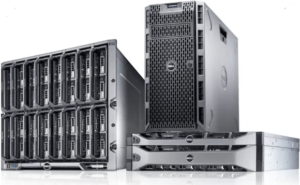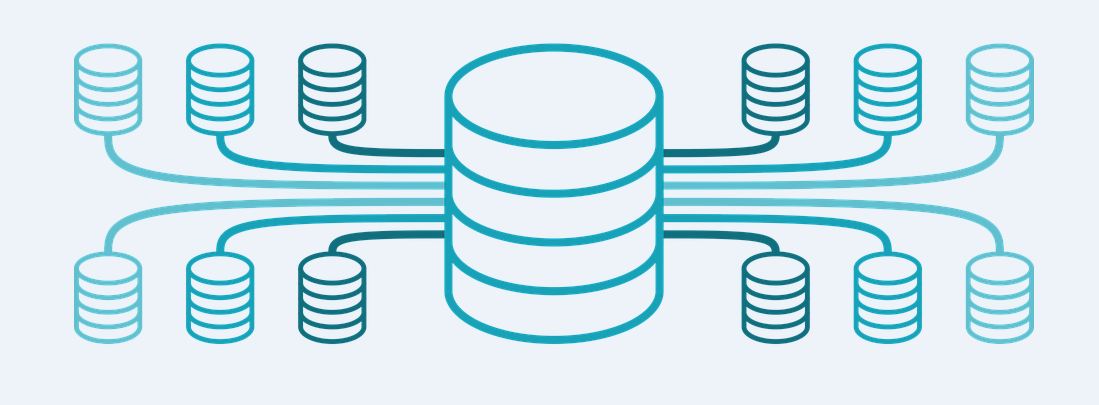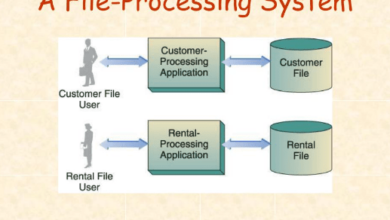Important Types of Servers in Networking
Table of Contents
A server is a computer or system designed to manage and deliver network resources, data, and services to another computer system over a network or internet. Servers are generally dedicated and only carry out their server tasks. Important types of servers are printer servers, DNS servers, Web servers, etc.
What is Server?
 A computer with the ability to provide services to other computer programs and their users connected to it through a network. Servers are physical computers dedicated to performing some computational tasks on behalf of clients. Examples: Database Server, File Server, etc.
A computer with the ability to provide services to other computer programs and their users connected to it through a network. Servers are physical computers dedicated to performing some computational tasks on behalf of clients. Examples: Database Server, File Server, etc.
What is the Client?
The client is a computer in a network that relies on a server in order to access and use the shareable resources and to perform any operation. The client computer fully depends on the server for accessing files and other resources. Examples of Client devices are laptops, smartphones & tablets, etc.
Difference Between Server and Client
Servers |
Clients |
| Much powerful than the client | Less powerful than the server |
| Have the ability to perform operations | Depends upon the server to perform operations |
| Servers provide resources to clients | Clients access sharable resources from servers |
| Servers are very costly | Clients are less expensive than servers |
| Consume a large amount of energy | Require less energy than server |
| Difficult to manage | Managed easily |
| Servers are generally dedicated to specific tasks | Clients are not dedicated to performing some specific task |
Types of Servers
Servers are designed to perform only their dedicated tasks. Different types of servers based on their functions are Database servers, File servers, Print servers, DNS servers, Mail Servers, Application servers, Web servers, Virtual servers, Proxy servers, Monitoring, and Management servers.

List of Servers
- Database servers
- Print Servers
- Transaction Server
- Application Servers
- Web Information Server
- Component Server
- Active Application Server
- Internet Server
- File Servers
- DNS Servers
- Mail Servers
- Web servers
- Virtual servers
- Proxy servers
- Monitoring & management Servers
Database Server
A database server is a computer in a network that is dedicated to holding the Database Management System (DBMS) and the database. It is used for the storage and retrieval of the database.
When a client request data, database servers find the desired records and convey them back over the network. The database server is often called a physical computer that hosts the database.
It is typically found in a client-server environment and is independent of the database architecture. A database server is useful for organizations where clients need to process data too frequently.
A database server is a computer system in a network that is dedicated to providing services related to the storage and retrieval of data from a database. When a client computer requests a query, the database server searches that data from selected records and sends back the results.
Database stored in these servers have their own connectivity port and can only support Database operations. It is better to have a separate database server over a network to improve application performance, & store large database objects. Examples are MySQL server, Oracle server, etc.
A query language specific to the database is used to access the data. SQL is an example of a query language.
File Server
A file server is a high-speed computer in a network that is responsible for providing shared storage of computer files and enables connected clients to access the server’s storage capacities. File servers generally use the File Transfer Protocol (FTP) on the internet.
The authorized users can access, open, read, amend and delete files on a file server. They also have the authorization to upload their own files to the server.
Basically, a file server is designed for the storage and fast retrieval of data where a large amount of computation is provided by the workstations.
These types of servers are commonly used in schools and offices using LAN to connect your client computers.
DNS Server
The domain name server is a fundamental part of the Domain Name System that contains a database of corresponding IP addresses and their associated domain names as well as identifying and locating computer systems and resource information during DNS queries.
DNS servers run special software and protocols to communicate with each other. In short, DNS servers define the current DNS provider of your domain. When you type a domain name into your browser A DNS server tells you the current IP address associated with that domain name.
These types of servers are responsible to apply the DNS protocol and provide domain name resolution services to Web hosts and clients on an IP-based network.
Mail Server
A mail server is a central computer that handles and delivers e-mails of clients over a network. It works like a post office, where mail is stored before being sent to its intended recipient. A mail server can deliver and receive e-mails from client computers.
A client computer is a device where you read your e-mails. Your computer at home or smartphone is an example of a client computer.
Application Server
Application Server is designed to install, store, operate, and manage applications and associated services for end-users, IT services, and organizations. It helps the hosting and delivery of customer or business applications, which are used by a large number of local or remote connected users.
Workload management manages the distribution of client processing tasks. The application server divides the incoming work requests that can most effectively process the requests and generate a dynamic response to a client request.
Web Server
A Web server is a computer system that uses HTTP and other protocols to deliver Web pages to client requests made over the World Wide Web.
A web server consists of a physical server, operating system (OS), server software, TCP/IP protocols, and site content used to facilitate HTTP communication.
Important types of web servers are Apache, Microsoft’s Internet Information Server (IIS) and Nginx, Novell’s NetWare server, Google Web Server (GWS), and IBM’s family of Domino servers.
These servers are to hold web server software, and exchange data and services to end-users over the internet. All these types of servers have IP addresses and possibly a domain name.
Apache or Microsoft IIS are some important types of Web server software that control how a user accesses hosted files or webpages over the internet.
Virtual Server
A virtual server is a Web server that shares hardware and software resources with other virtual servers. Virtual means it is not a dedicated server. Virtual servers are famous in Web hosting environments because they are cost-effective and provide quick resource control.
Each virtual server has its own OS, software, and independent reboot provisioning. Website administrators or Internet service providers (ISP) in a virtual server environment for Web hosting have their own different domain names, IP addresses, email administration, file directories, logs, and analytics.
Furthermore, security systems and passwords are maintained as if there is a dedicated server environment.
Proxy Server
A proxy server is a server that acts as a gateway between a client application and the internet. It works as an intermediary server that separates end-users from the websites they browse.
Proxy servers provide various levels of functionality, enhanced security & privacy depending on your needs or company policy. When you use a proxy server, internet traffic travels through the proxy server on its way to the address you are searching for.
The result of the request comes back through that same proxy server and transmits the data you received from the requested website. The function of these types of servers is to filter requests and improve performance.
Monitoring & Management Servers
Monitoring & management is a type of server whose function is to control, generate, store, and install all policies. It holds all logs, manages to alert, and stores all user definitions. It contains a mini-PKI that secures communication between components.
Read Now:


